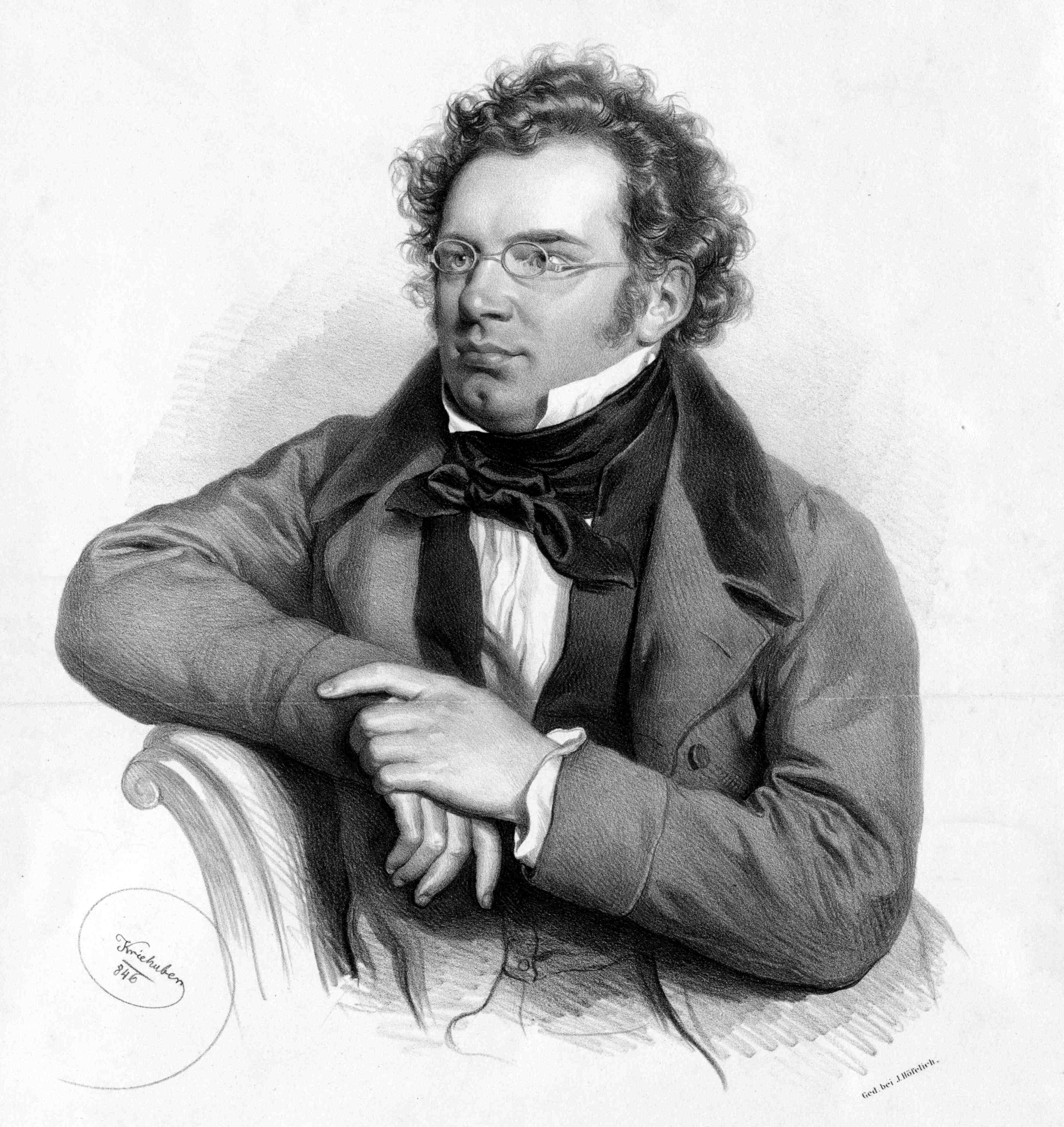Schubert and Beethoven were contemporaries at the dawn of the Romantic Era, yet each approached composition differently. Beethoven painstakingly developed small musical motives that roared to life as shockingly innovative music. The music of Franz Schubert on the other hand, is firmly rooted in long, flowing, effortless melodies. Although Schubert lived only to the age of 32, he wrote over 600 songs.
Before we get to a few Schubert songs, let’s consider what draws us to a great melody. What makes it so satisfying and fun? How do a combination of pitches conjure up emotions which cannot be fully described by words? Leonard Bernstein discusses musical semantics in detail in his Norton Lectures. More generally, part of a melody’s drama lies in its ability to play with our expectations. As we listen, we have a sense of all the notes that would be “right” at any given moment. Our expectations are either fulfilled or we are surprised with something unexpected. Our enjoyment of our favorite melody only increases as we hear it, even though we know what’s coming.
Listen to Schubert’s Impromptu for Piano, D 899, No. 3 and consider how melody and harmony are used to fulfill your expectations or surprise you. You may even notice that Schubert suddenly changes key and transports the music to a completely different place emotionally. You’ll also hear a distinctly vocal quality.
Impromptu for Piano in G-flat Major, D 899, No. 3…Franz Schubert (1797-1828)
Der Erlkonig (or The Erl King) is one of Schubert’s most famous songs. Set to a poem by Goethe, it is the musical equivalent of a modern day horror film. The story depicts a father riding on horseback through the night, cradling his son. A ghost, or demon, known as the Erl King begins speaking to the boy. The frightened child warns his father, but the father assures him that he is only hearing the wind.
Schubert evokes the galloping horse musically with repeated notes and a sinister opening motive. One singer performs the roles of the narrator, the father, the child and the Erl King. Listen for the way Schubert changes the music for each character. As you listen, follow the English translation below:
Der Erlkonig, D 328…Franz Schubert (1797-1828)
Who rides, so late, through night and wind?
It is the father with his child.
He has the boy well in his arm
He holds him safely, he keeps him warm.
“My son, why do you hide your face so anxiously?”
“Father, do you not see the Elfking?
The Elfking with crown and tail?”
“My son, it’s a wisp of fog.”
“You dear child, come, go with me!
Very lovely games I’ll play with you;
Some colourful flowers are on the beach,
My mother has some golden robes.”
“My father, my father, and don’t you hear
What the Elfking quietly promises me?”
“Be calm, stay calm, my child;
The wind is rustling through withered leaves.”
“Do you want to come with me, pretty boy?
My daughters shall wait on you finely;
My daughters will lead the nightly dance,
And rock and dance and sing you to sleep.”
“My father, my father, and don’t you see there
The Elfking’s daughters in the gloomy place?”
“My son, my son, I see it clearly:
There shimmer the old willows so grey.”
“I love you, your beautiful form entices me;
And if you’re not willing, then I will use force.”
“My father, my father, he’s grabbing me now!
The Elfking has done me harm!”
It horrifies the father; he swiftly rides on,
He holds the moaning child in his arms,
Reaches the farm with trouble and hardship;
In his arms, the child was dead.
Here is another setting of Goethe, Heidenroslein (or Rose on the Hearth). The poem’s topic is a young man’s rejected love. You can read an English translation here.
Heidenroslein, D 257…Franz Schubert (1797-1828)


Thank you for this site. Schubert has always been my favorite composer. I was unaware of the Goethe poem and the meaning of this piece of music above, my personally being uninitiated in the world of music academia. It absolutely struck my heart, having lost my own little boy, recently to DIPG.